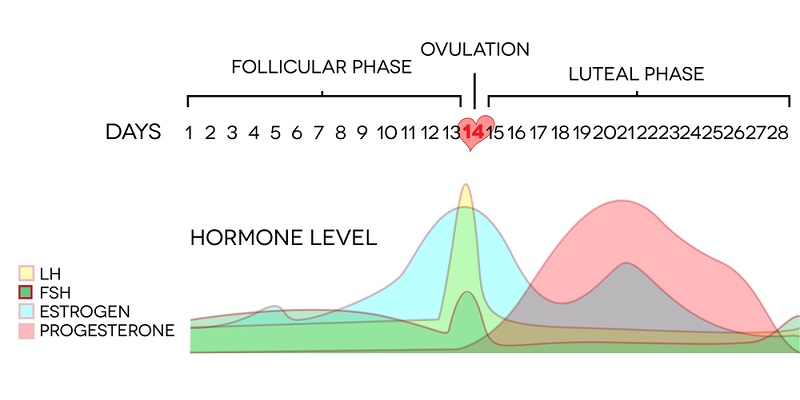Blog

The Impact of Fasting on Women's Fertility and the Importance of Timing and Progesterone
Fasting, the practice of abstaining from food and sometimes drink for a specific period, has gained popularity for its purported health benefits. However, its effects on women's fertility are complex and can vary depending on several factors, including timing and hormonal balance within the menstrual cycle.
Fasting during different phases of the menstrual cycle can have differing impacts on fertility. Research suggests that fasting during the follicular phase, which precedes ovulation, may have fewer adverse effects on reproductive health compared to other phases. During the follicular phase, the body is primarily focused on preparing for ovulation, and fasting during this time may not disrupt hormonal balance as severely as during other phases.
The follicular phase is characterized by the growth and maturation of ovarian follicles, which house the developing eggs. The dominant hormone during this phase is estrogen, which stimulates the thickening of the uterine lining in preparation for potential embryo implantation. Fasting during the follicular phase may help regulate insulin sensitivity and improve metabolic health without significantly affecting reproductive hormones.
One crucial hormone influenced by the menstrual cycle is progesterone, which plays a vital role in preparing the uterus for implantation and supporting early pregnancy. Progesterone levels typically rise after ovulation during the luteal phase of the menstrual cycle. Insufficient progesterone levels can adversely affect fertility and increase the risk of miscarriage.
If progesterone levels decrease, it can lead to various fertility-related issues, such as:
Shortened Luteal Phase: A shortened luteal phase, characterized by insufficient progesterone production, can reduce the time available for the uterine lining to develop adequately, potentially compromising embryo implantation.
Luteal Phase Defect: In some cases, low progesterone levels can result in a luteal phase defect, where the uterine lining is inadequately prepared to support implantation, increasing the likelihood of early pregnancy loss.
Anovulation: Disruptions in the balance of reproductive hormones, including progesterone, can lead to irregular ovulation or anovulation, which can impair fertility and make conception more challenging.
It's essential for women considering fasting as part of their lifestyle or health regimen to be mindful of its potential effects on fertility. While fasting during the follicular phase may have fewer adverse impacts, it's crucial to maintain overall hormonal balance throughout the menstrual cycle. Consulting with a healthcare provider or fertility specialist can provide personalized guidance on fasting practices and their potential effects on reproductive health. Additionally, monitoring menstrual cycles and hormonal markers can help identify any disruptions and facilitate timely intervention if needed. Balancing lifestyle choices with reproductive health considerations is key to optimizing fertility and overall well-being.
Powered By AI

Comments (0)